Founded in 1982 by Rabbi Yaakov Rosenberg zt”l, Machon Shlomo began as a small, elite yeshiva in the quiet neighborhood of Har Nof, Jerusalem, dedicated to shaping future Jewish leaders through deep Torah study and personal growth. At the time, Har Nof was little more than a dozen newly finished buildings atop a quiet mountainside, accessible only by a dirt road. Rabbi Rosenberg hand-picked this secluded environment as the ideal setting for students to immerse themselves in Torah study, away from distractions, and build a strong foundation for life.
Our Guiding Principles
Rooted in tradition, driven by purpose—our mission, vision, and values shape the foundation of Machon Shlomo and its students.
Vision
To cultivate a new generation of Jewish leaders—empowered with Torah wisdom, ethical clarity, and a deep connection to their heritage—who will inspire and uplift their communities.
Our Philosophy
Every Jewish individual has a unique potential, special greatness, and personal connection to Torah that needs to be actualized in order for him to become a complete human being.
The Vision of Slobodka: Living Life at its Fullest
Rabbi Nosson Tzvi Finkel zt’l, the Alter of Slobodka, taught that serving G-d isn’t confined to rituals or specific times. Torah study, prayer, and mitzvot extend beyond the synagogue into daily life. Every moment presents an opportunity for spiritual growth.
.avif)
Based on an essay by Rabbi Shlomo Wolbe zt’l
March 6, 2025
The Vision of Slobodka: Living Life at its Fullest
When we look at the generations of our grandparents and their parents, we find, generally, that people were intellectually and emotionally stronger, more confident and independent, and better able to deal with the problems and challenges of life. Although they had none of the technological innovation or economic affluence that exists today, they lived spiritually fulfilling and happy lives. Today, in contrast, while the external trappings of our world, such as technology, transportation, and economic affluence, have advanced immensely, the generation has dropped considerably in its perception of what it means to be a great human being.
When people say, “I want to be great,” they say it without knowing what greatness means. They often mean that they want honor or material wealth. True greatness is virtually hidden from our field of vision. Most people have never personally encountered a great person.
People of our generation cannot endure exacting reproof, like the reproof of the great Ba’alei Mussar, the Jewish masters of character development, who used to analyze their students’ deeds and character traits down to their very core level, exposing their hidden flaws and shortcomings. While people in previous generations gained wisdom, insight, and motivation to grow from such deep internal scrutiny, most people today would become crushed from it or suffer from despair.
Today, a new approach to personal change must be taken. The spirit must first be uplifted, the person must become deeply aware of the idea of man’s greatness. Afterwards, he is able to endure the scrutiny of his deficiencies. The first step of character development is to learn the greatness of what man can achieve.
One who begins the journey of personal growth must first gain the ability to perceive attributes of greatness. This requires serious study, for without learning, we cannot know that there are such attributes. We live in a primarily material world, and we are much more in touch with our physicality than with our spirituality, the true root of growth and greatness. After one studies the texts that teach what greatness is, one must introspect, deeply and for an extended period of time, and discover what attributes of greatness rest within himself.
Accordingly, the first practical step is to study the classic Mesilas Yesharim, The Path of the Just (first published in 1738). It is appropriate not to attempt, at first, to discover and build within oneself the particular attribute discussed in each chapter. Rather, one should merely learn about the attribute, understand what it means. He should learn to appreciate it, value its purpose, and desire to develop it in himself. This approach is what the author himself, the Ramchal (Rabbi Moshe Chaim Luzzato), advocates in his other classic work, Derech Etz Chaim:
Why does a man not think, every day, even for a moment, thoughts, real thoughts, like “What am I?”
“Why have I come into the world?” “What does G-d request of me?”
“What should I have accomplished by the end of my life?”
Such thinking about your purpose in life is the most powerful way, and has the greatest impact, to equip you to battle the inclination for indolence and apathy. It is easy to think such thoughts. It changes you rapidly and bears significant results. A man should seclude himself every day for a period of time, free from distractions, just to think over this matter about which I have spoken, and think about things such as: What did the Patriarchs (Abraham, Isaac, and Jacob) do to endear them so much to G-d? What did Moses, our teacher, do that made him so great? What did King David, and all the great people before us, do? Contemplate how good it would be for man, all the days of his life, to do like them. Afterwards, explore your inner world to know what your strengths are, and ask yourself, isn’t there something you can do?
Here is the general rule: A person who does not think about how great a person can be will find it very difficult to reach greatness, while a person who thinks about this matter is very close to it.
The benefit of merely thinking about the good traits of others is that it brings one close to those traits. What is the Ramchal asking us to do? He is asking us to engage in self-introspection that focuses not on the deficiencies within ourselves, but on our positive traits.
Discovering one’s strengths, however, is more difficult than knowing one’s deficiencies. Man today is drowning in feelings of lowliness and depression. His base inclination constantly pushes him towards inaction and mediocrity, and his conscience assaults him. If a man concentrates on himself honestly for a little time, he will see his flaws and what he is doing wrong, and as a result he will begin to despair and to lose sight of any way to change. In that state it is difficult for him to think about greatness, especially about the greatness within himself. Nevertheless, focusing on the greatness of man is the only effective way to lift oneself out of a sense of lowliness and insignificance.
Most people think that “knowing ourselves” means knowing what’s wrong with us, our flaws, and our negative attributes. While it certainly is important to be aware of our weaknesses, before we explore our deficiencies we are obligated to recognize the greatness of man, the greatness within ourselves, with candid clarity.
Personal Growth: The Challenge of Our Generation
Machon Shlomo equips motivated students with the skills to engage deeply with Jewish texts, philosophy, and law. Through rigorous study and mentorship, we foster intellectual, spiritual, and personal growth for a lifetime of Torah learning and meaningful living.

Based on an essay by Rabbi Shlomo Wolbe zt’l
March 6, 2025
Personal Growth: The Challenge of Our Generation
When we look at the generations of our grandparents and their parents, we find, generally, that people were intellectually and emotionally stronger, more confident and independent, and better able to deal with the problems and challenges of life. Although they had none of the technological innovation or economic affluence that exists today, they lived spiritually fulfilling and happy lives. Today, in contrast, while the external trappings of our world, such as technology, transportation, and economic affluence, have advanced immensely, the generation has dropped considerably in its perception of what it means to be a great human being.
When people say, “I want to be great,” they say it without knowing what greatness means. They often mean that they want honor or material wealth. True greatness is virtually hidden from our field of vision. Most people have never personally encountered a great person.
People of our generation cannot endure exacting reproof, like the reproof of the great Ba’alei Mussar, the Jewish masters of character development, who used to analyze their students’ deeds and character traits down to their very core level, exposing their hidden flaws and shortcomings. While people in previous generations gained wisdom, insight, and motivation to grow from such deep internal scrutiny, most people today would become crushed from it or suffer from despair.
Today, a new approach to personal change must be taken. The spirit must first be uplifted, the person must become deeply aware of the idea of man’s greatness. Afterwards, he is able to endure the scrutiny of his deficiencies. The first step of character development is to learn the greatness of what man can achieve.
One who begins the journey of personal growth must first gain the ability to perceive attributes of greatness. This requires serious study, for without learning, we cannot know that there are such attributes. We live in a primarily material world, and we are much more in touch with our physicality than with our spirituality, the true root of growth and greatness. After one studies the texts that teach what greatness is, one must introspect, deeply and for an extended period of time, and discover what attributes of greatness rest within himself.
Accordingly, the first practical step is to study the classic Mesilas Yesharim, The Path of the Just (first published in 1738). It is appropriate not to attempt, at first, to discover and build within oneself the particular attribute discussed in each chapter. Rather, one should merely learn about the attribute, understand what it means. He should learn to appreciate it, value its purpose, and desire to develop it in himself. This approach is what the author himself, the Ramchal (Rabbi Moshe Chaim Luzzato), advocates in his other classic work, Derech Etz Chaim:
Why does a man not think, every day, even for a moment, thoughts, real thoughts,
like “What am I?” “Why have I come into the world?” “What does G-d request of
me?” “What should I have accomplished by the end of my life?”
Such thinking about your purpose in life is the most powerful way, and has the greatest impact, to equip you to battle the inclination for indolence and apathy. It is easy to think such thoughts. It changes you rapidly and bears significant results. A man should seclude himself every day for a period of time, free from distractions, just to think over this matter about which I have spoken, and think about things such as: What did the Patriarchs (Abraham, Isaac, and Jacob) do to endear them so much to G-d? What did Moses, our teacher, do that made him so great? What did King David, and all the great people before us, do? Contemplate how good it would be for man, all the days of his life, to do like them. Afterwards, explore your inner world to know what your strengths are, and ask yourself, isn’t there something you can do?
Here is the general rule: A person who does not think about how great a person can be will find it very difficult to reach greatness, while a person who thinks about this matter is very close to it.
The benefit of merely thinking about the good traits of others is that it brings one close to those traits. What is the Ramchal asking us to do? He is asking us to engage in self-introspection that focuses not on the deficiencies within ourselves, but on our positive traits.
Discovering one’s strengths, however, is more difficult than knowing one’s deficiencies. Man today is drowning in feelings of lowliness and depression. His base inclination constantly pushes him towards inaction and mediocrity, and his conscience assaults him. If a man concentrates on himself honestly for a little time, he will see his flaws and what he is doing wrong, and as a result he will begin to despair and to lose sight of any way to change. In that state it is difficult for him to think about greatness, especially about the greatness within himself. Nevertheless, focusing on the greatness of man is the only effective way to lift oneself out of a sense of lowliness and insignificance.
Most people think that “knowing ourselves” means knowing what’s wrong with us, our flaws, and our negative attributes. While it certainly is important to be aware of our weaknesses, before we explore our deficiencies we are obligated to recognize the greatness of man, the greatness within ourselves, with candid clarity.
Created in G-d’s Image
Machon Shlomo empowers students to engage deeply with Jewish texts, philosophy, and law, fostering intellectual and spiritual growth. Through rigorous learning and mentorship, we lay the foundation for a lifetime of Torah study and meaningful living.

An excerpt from “Created in G-d’s Image”
March 6, 2025
Created in G-d’s Image
A Talk by Rav Nosson Tzvi Finkel zt’l, the “Alter of Slobodka” (1849-1927)
Translated by Rabbi Nosson Scherman
All aspects of our life, whether physical or moral, communal or personal, are conducted and directed, founded and based, on the middah (character trait) of recognizing-our-self-worth. Someone who lacks understanding generally, and particularly doesn’t understand who he is, treats himself cheaply and treats all of life cheaply, even to the extent that he might sometimes carelessly endanger himself even for the sake of insignificant benefits. Someone who is wise acts differently.
This person recognizes himself and considers his life precious and dear. With all this strength he attempts to uplift himself and his life.
Recognition of our self-worth is the measure of our life, and it is the fundamental middah (character trait) responsible for human growth. Therefore, the most essential of all essential principles of life is that we must learn to value a person…. Only when we value ourselves appropriately can avodah (our attempt to achieve growth) really begin. Only when we possess a realistic self-evaluation do we possess the yardstick we will need to measure our behavior and actions, our general and particular conduct.
The Mishna (Pirkei Avos 3:18) teaches: “Beloved is man who was created in G-d’s image; G-d revealed an even greater love for us by informing us that we were created in G-ado’s image, as it is said (Bereishis 9:6): ‘For in the image of G-d He made man.’”
It is indicative of a greater love that we were informed that we were created in G-d’s image. That revelation informs us of human greatness and value, of our own personal importance and our preciousness to our Creator. If we thoughtfully consider the qualities and value of our Tzelem Elokim (Divine image), and pause to appreciate the extraordinary potential perfection that actually exists within us, then we will realize that we tower infinitely above the most refined and exalted creatures, from the heights of heaven to the depths of the seas.
Then we also will begin to recognize that even the wisest secular scholars in history — who attempted to fathom the uniqueness of the human being and his greatness and value — failed to appreciate even a fraction of the true greatness, the Tzelem Elokim, that the Torah attributes to us. After all, the real value and exaltedness of a person who strives to imitate G-d is no less than the value and exaltedness that our infinite G-d is capable of granting. Our real worth is determined by Him, and He tells us that we are infinitely valuable, even by His standards.
If we recognize how incomprehensibly valuable we really are, then we begin to understand the awesome responsibility we have to work on changing and perfecting ourselves. We begin to understand our obligation to fulfill the duties of the heart found in our Holy Torah, in our great and exalted Torah of mussar which is unparalleled by any of the self-improvement systems designed by the wisest of human minds.
From within the perspective we have assembled we must examine the great mitzvah to “walk in His ways,” to imitate Him, as our sages explained (Tractate Shabbos 133a): “‘This is my G-d and I will glorify Him’ (Exodus 15:2) — I will become similar to Him: just as He is merciful, so must I be….” This mitzvah encompasses all the halachic obligations to change, grow, and achieve perfection by acting like Hashem. We must reach an accurate enough appreciation of who we really are that we don’t respond to this mitzvah with astonishment, “How can a mere human being, with his human weaknesses, be expected to imitate G-d?”
We must recognize and know that the mitzvah to imitate G-d is not an impossible decree of the King to become different than we are; rather, this great mitzvah befits us, especially once G-d has revealed His great love by informing us that we were created in His image. The Divinity within us obligates us to become whom we really are in potential, whom we were created to be — to release the potential within each of us and become people who truly reflect G-d’s image.
Once G-d has revealed his great love by informing us that we were created in His image, that fact must become the seal and emblem emblazoned on the surface of our hearts. We must never be distracted from this seal and emblem. Rather, we must courageously exert ourselves to drive our true identity into all lawyers of our consciousness, so that we will love ourselves as much as G-d Himself loves us. We are the most beloved creatures in His universe. We must struggle with all our strength to become perfect, as we all are in potential. Our outsides (our real character) must match our insides (our potential). Our bodies’ every move must be guided by the goal of imitating Hashem. Then we will deserve to be described by the Holy One’s proud exclamation (Midrash Bereishis Rabbah chapter 12), “Look at the creation I created in My world, and the form that I formed!”
The Heart of Machon Shlomo
Our relatable and inspiring Rabbis have been guiding students in the fundamentals of Judaism for decades. Students form lasting bonds with their teachers that extend far beyond the classroom.
Life-After Machon Shlomo, Where Torah meets the world
In addition to becoming accomplished young Torah scholars, our alumni have gone on to occupy positions at the highest levels of their professions, including in law, medicine, finance, education, music, engineering, public service, and the rabbinate. The vast majority of students return to their home community after studying at Machon Shlomo. However, a handful of alumni have settled in English-speaking communities in Israel, including Har Nof, Rachavia, and Ramat Beit Shemesh.
.webp)
.webp)
Future Leaders Start Here
Most students come from the United States and all classes are taught in English. Students have also come from many other countries, including Brazil, England, France and Russia.
Officially, the yeshiva follows the Ashkenazi tradition, although some students are often Sefardi.The yeshiva caters to those with no prior experience in Jewish learning, as well as those who have had moderate exposure.
The most important qualities in a potential applicant are self-discipline, motivation, a genuine desire to grow, and the drive to discover and achieve his unique potential.
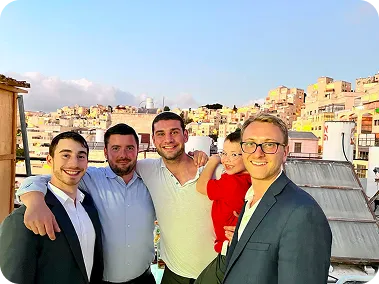
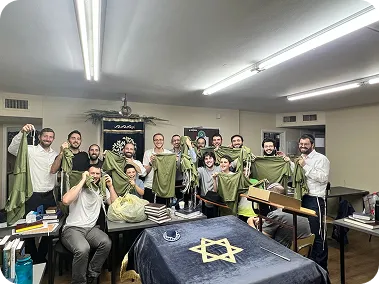
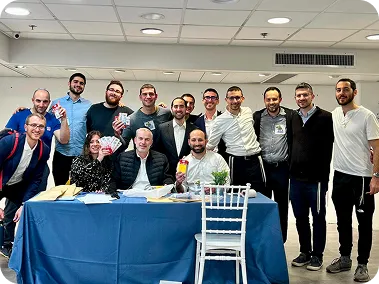
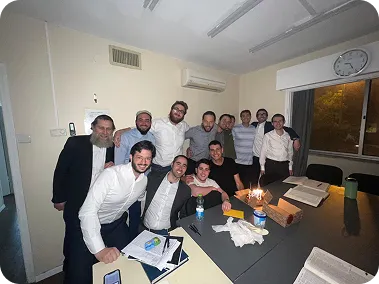
.webp)

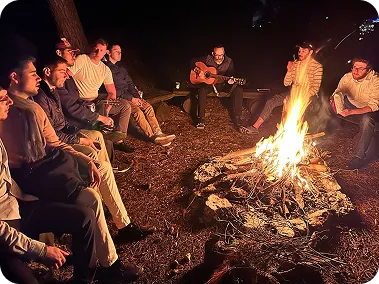
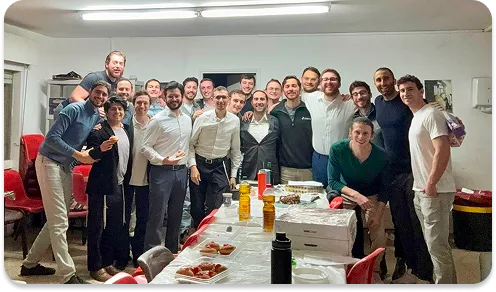
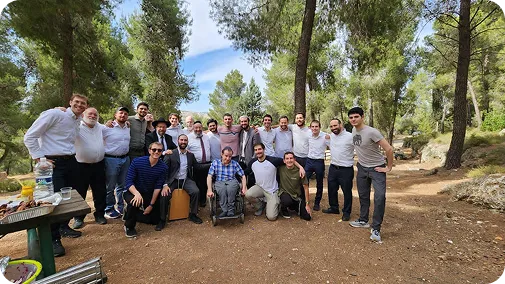
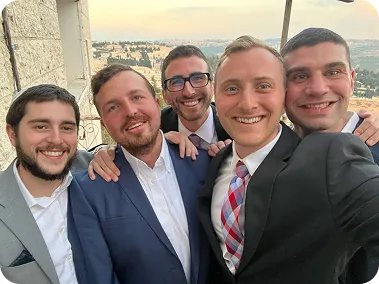
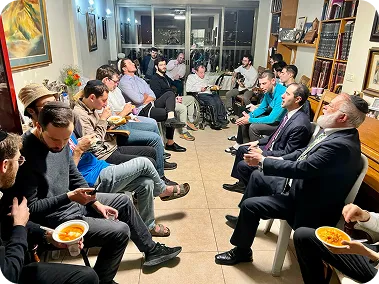
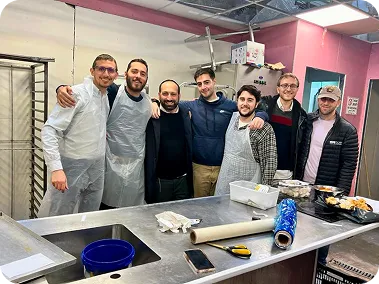
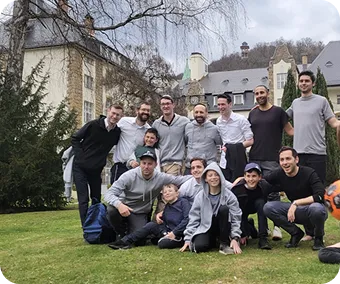
.webp)
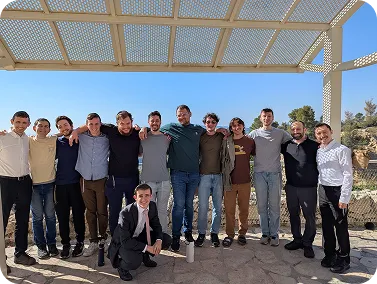
.webp)
.webp)
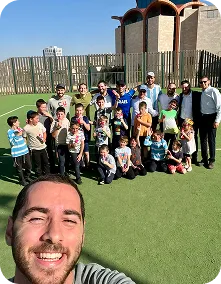
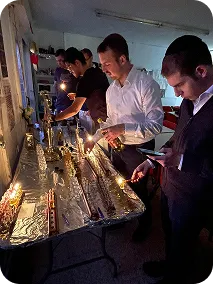
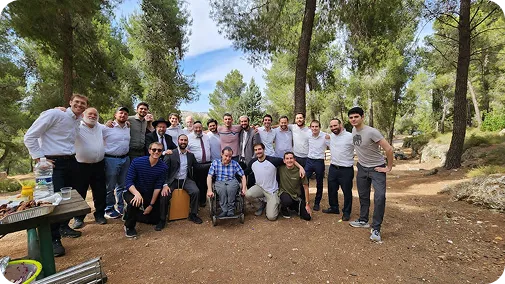
.webp)
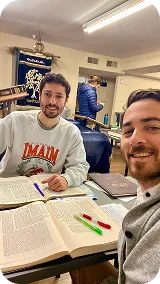
.webp)
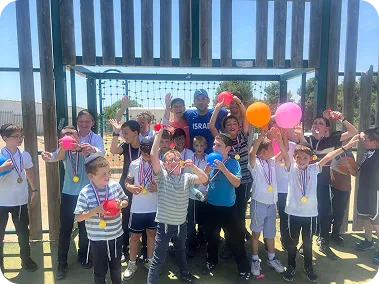
.webp)
.webp)
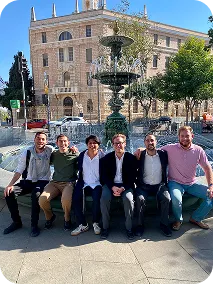
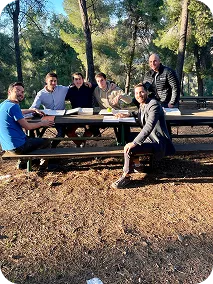
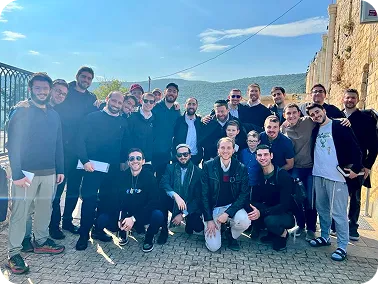

A Structured Path Towards Jewish Growth
We offer a rigorous and balanced program designed to deepen your Torah knowledge, build your character, and prepare you for a life of purpose.
Machon Shlomo follows a structured nine-month academic calendar, starting in early September and ending in mid-June, with Passover, Sukkot, and winter breaks. Our curriculum is designed to help every student grow during their time at Yeshiva. We equip students of all backgrounds with the skills to study Torah independently, explore Jewish philosophy, and develop personal growth rooted in Torah values. The goal is to learn how to learn and build a foundation for ongoing growth in Torah. Through small classes taught by dedicated rabbis, students explore the richness and wisdom of their heritage in a warm and vibrant atmosphere.
Program Highlights
.svg)
Depth of Torah
Unlock the relevancy, passion, and infinite depth of Torah wisdom and it application to everyday life.
.svg)
Personal Development
Study and actualize a
more complete version of self in all three major relationships in life - with one's Creator, others, and oneself.
.svg)
Independent Learning Skills
Build a strong foundation in Talmud, Halacha, and textual analysis.

Our goal is to equip students with the ability to learn independently and build a strong foundation for lifelong growth in Torah. In an environment of warmth and energy, small classes led by devoted rabbis open the door to the depth and beauty of Jewish tradition.
From a Parent’s Perspective
We take the commandment to Honor your father and mother seriously. Parents tell us that students return from their time at Yeshiva as better sons and brothers.

We were surprised when our son left his real estate job to study Torah in Israel. Though uncertain at first, visiting Machon Shlomo showed us the depth of its education and community. The experience helped him grow profoundly, and today he lives nearby with his family in a warm, observant community. It’s brought us all closer together.

Dean Schuckman
Certified Public Accountant

When Yoni chose to delay medical school to study at Machon Shlomo, we were unsure and concerned about how it might affect our close bond. But after visiting and meeting Rabbi Gershenfeld, we were deeply moved. The yeshiva’s environment helped Yoni grow intellectually, emotionally, and spiritually.
.avif)
Diana Ganger
Organizational Consultant

We were surprised when our son left his real estate job to study Torah in Israel. Though uncertain at first, visiting Machon Shlomo showed us the depth of its education and community. The experience helped him grow profoundly, and today he lives nearby with his family in a warm, observant community. It’s brought us all closer together.

Dean Schuckman
Certified Public Accountant

When Yoni chose to delay medical school to study at Machon Shlomo, we were unsure and concerned about how it might affect our close bond. But after visiting and meeting Rabbi Gershenfeld, we were deeply moved. The yeshiva’s environment helped Yoni grow intellectually, emotionally, and spiritually.
.avif)
Diana Ganger
Organizational Consultant
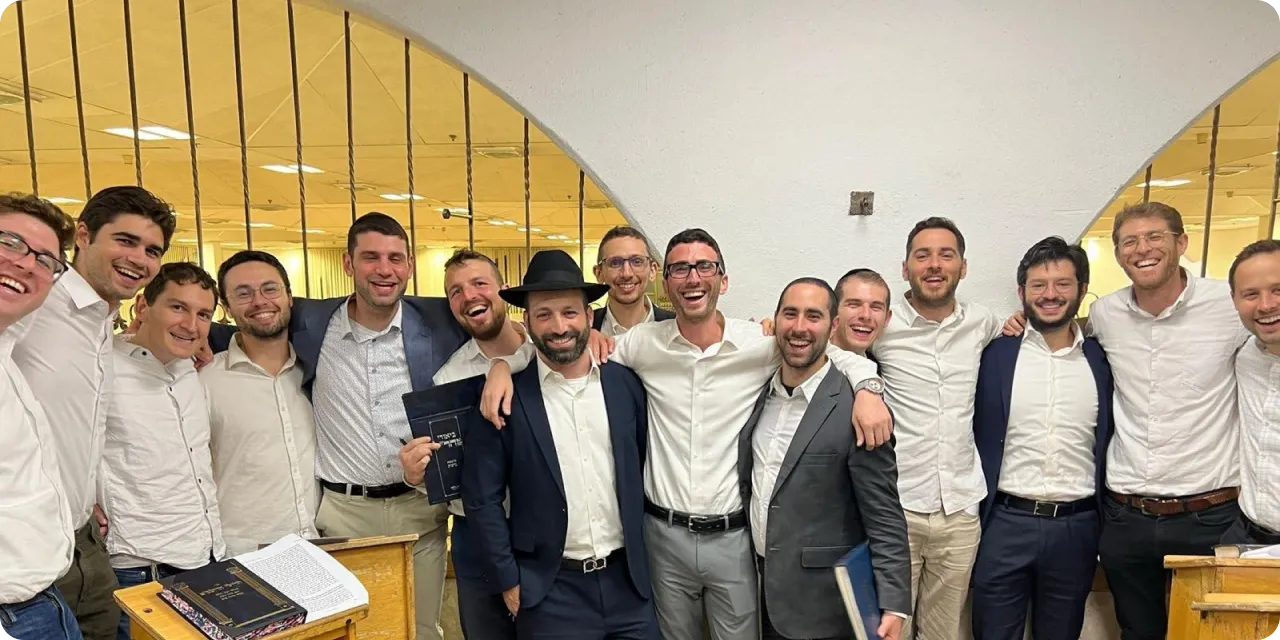
.avif)
.avif)
.avif)
.avif)
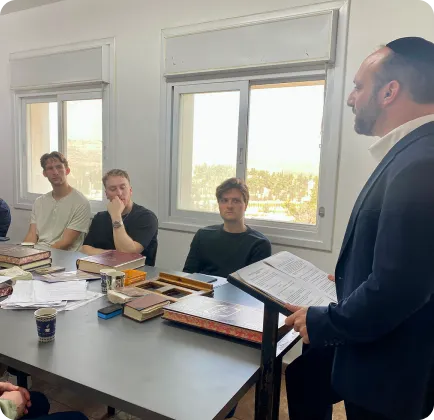


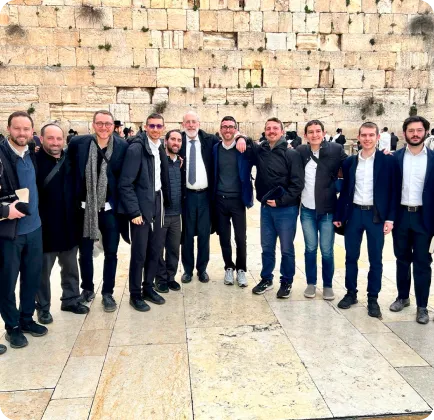
.webp)
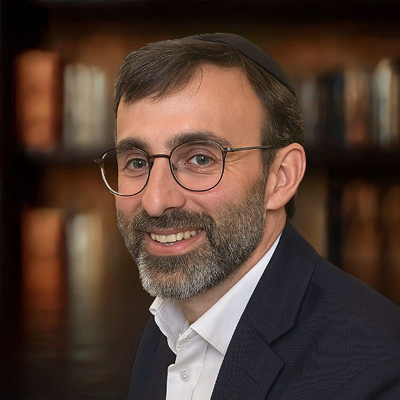
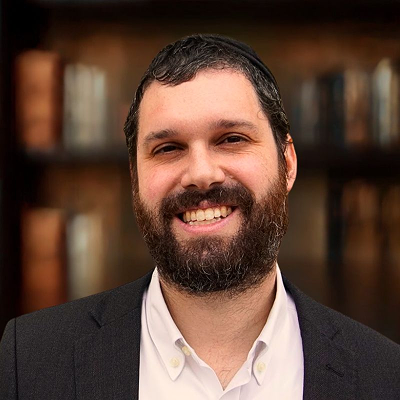
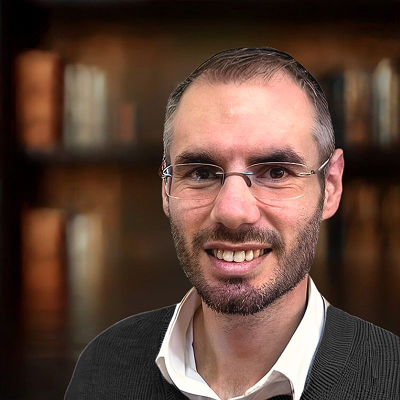
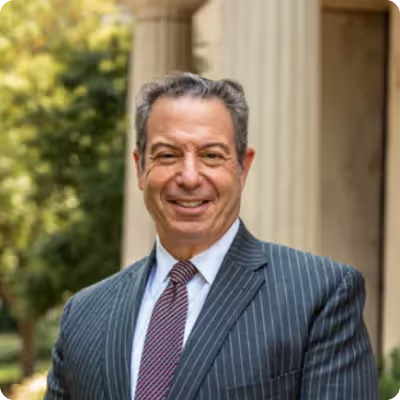
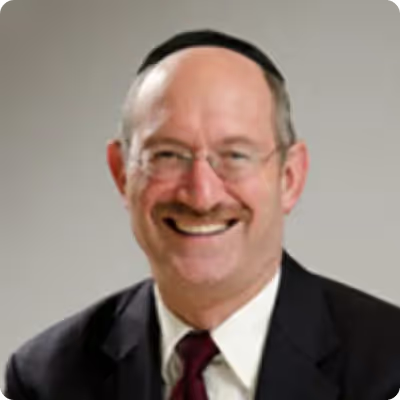

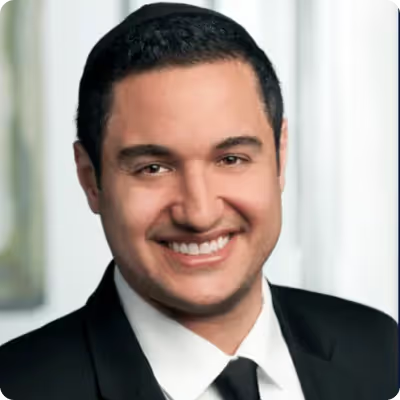
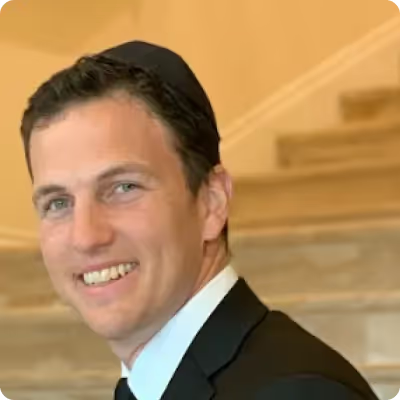

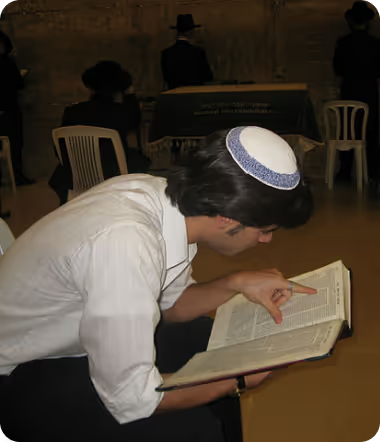

.avif)



.webp)